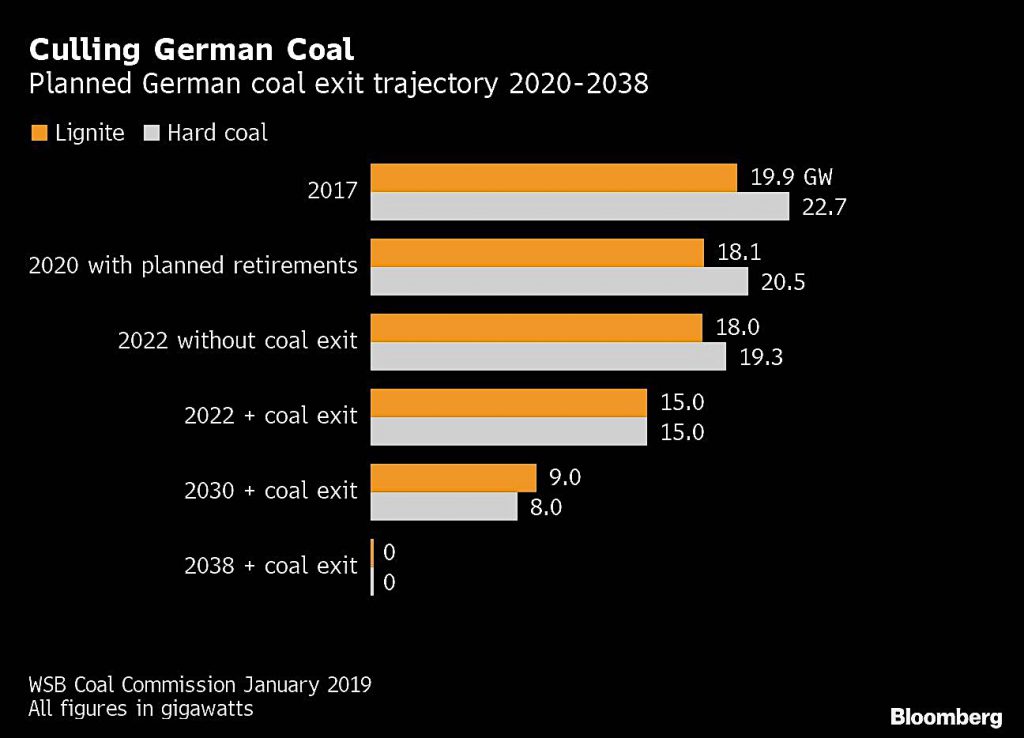German Chancellor Angela Merkel’s
cabinet has approved legislation setting a detailed schedule for the phase out of
more than 100 coal-fired power stations across Europe’s largest economy by 2038.
The timetable follows an agreement
reached earlier this month between Germany’s government and its coal-producing
states to kick off the shutdown of their fossil fuel-fired power plants as
part of the country’s efforts to fight climate crisis
The deal, which also implies shutting
down the mines that feed those plants, sees the government paying up to 40
billion euros ($44bn) in structural aid to the affected coal states of
Brandenburg, North-Rhine Westphalia, Saxony and Saxony-Anhalt in the next 18
years.
Merkel’s administration will take
further measures worth up to 4.8 billion euros ($5.3bn) in compensation to
employees affected by the coal exit law until 2043, and a further 6 billion
euros to utilities.
Germany’s timetable, however, could present challenges to the European Union’s efforts to cut its greenhouse gas emissions sooner — by at least 40% by 2030. Most of the 28 EU states aim to become carbon-neutral by 2050 —that is, carbon emissions should be balanced by carbon-reduction measures. Poland, however, relies heavily on coal and has a temporary exemption.

Germany is the world’s largest
producer of lignite (or brown coal) and it fuels about 19% of the country’s
electricity capacity. That kind of coal is considered the most polluting type because
its low heat content means more must be burned and it contains a large amount
of impurities such as toxic chemicals.
Late last year, the German government agreed not to force hard coal power plants — which rely on imported raw material — to close over the next seven years. The government plans to use a mixture of subsidies and tenders to encourage operators to close hard coal plants beginning this year.
With files from Bloomberg.
